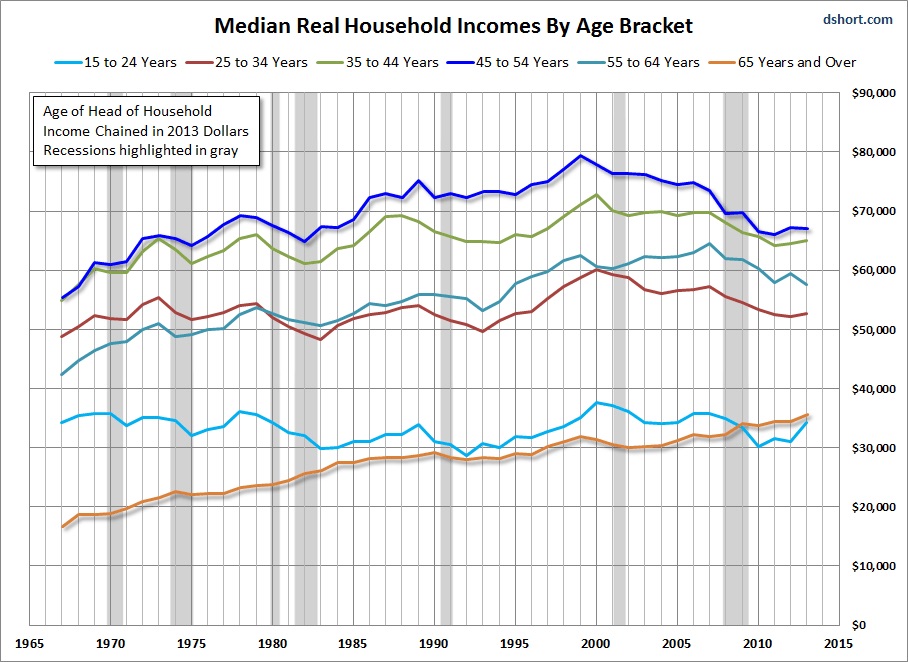For a generation (fifteen years) or more I’ve been writing and rewriting the same piece about the silliness of the “generation game”, the idea that one’s year of birth matters more than class, gender or race in determining life outcomes and attitudes. But this is a zombie idea that can never be killed.
Stephen Rattner in the New York Times is the latest example, with a piece showing that US Millennials (those born after 1980) are doing much worse than previous generations at the same age, despite higher levels of education. Rattner notes the role of the recession, now nearly a decade old, but then jumps to the conclusion that it is the Baby Boomers, as a group, who are to blame. His only evidence for this is the long-discredited claim of a looming crisis in Social Security.
Rattner doesn’t present any evidence about the recent experience of non-Millennials, but his piece leaves the impression that the experience of doing worse than older cohorts at the same age is uniquely Millennial. So I thought I’d do his work for him, and dug out this graph prepared by Doug Short  As can be seen, the group suffering the biggest loss, relative to older cohorts at the same age, are those households with heads aged 45-54 in 2013, a mix of late Boomers (for aficianados, this group is called Generation Jones) and early X-ers. But the main point is that median household income is falling for all groups except the 65+ cohort (mostly called Silents in the generation game). Part of this is due to declining household size, but (IIRC) household size has stabilized recently as forming a new household has become less affordable.
As can be seen, the group suffering the biggest loss, relative to older cohorts at the same age, are those households with heads aged 45-54 in 2013, a mix of late Boomers (for aficianados, this group is called Generation Jones) and early X-ers. But the main point is that median household income is falling for all groups except the 65+ cohort (mostly called Silents in the generation game). Part of this is due to declining household size, but (IIRC) household size has stabilized recently as forming a new household has become less affordable.
Rattner doesn’t mention, even once, the obvious and well-known explanation for the fact that median income is falling while mean income rises. This can only occur if the distribution of income is becoming more skewed, with the top tail (the 1 per cent) benefiting at the expense of everyone else.